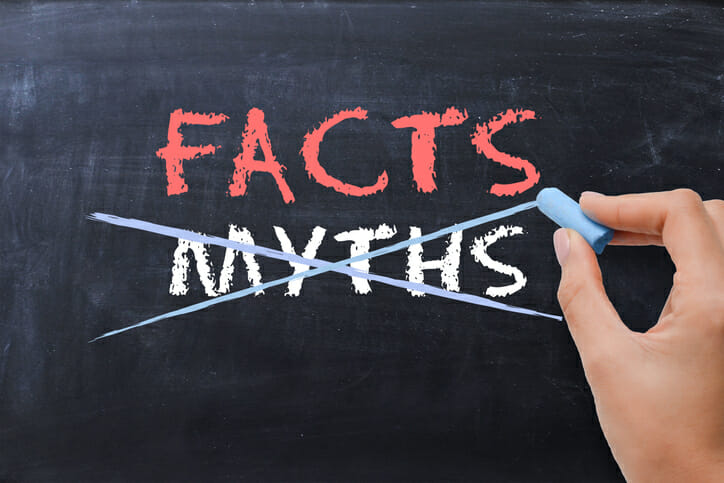Six Myths About Donation
There are many questions and myths around organ, eye, and tissue donation. Unfortunately, people often disqualify themselves as potential donors by citing misconceptions. Regardless of your age, race, religion, or health you can still share the gift of life.

I’m Too Old To Donate.
People of any age can register to be a donor. A person’s age is not a factor when being considered as a donor. People have been organ donors and transplant recipients in their 50s, 60s, 70s and beyond. In fact, the oldest organ donor ever was 95! He was able to donate his liver and saved the life of a 69-year-old woman.
Research and medical advancements have made transplants more successful for all, so the number of people eligible for a transplant – and the age of those eligible to donate – continues to grow.
I’m Too Young To Donate.
You’re never too old or too young to save lives as an organ donor. While the final donation decision will be left to parents or legal guardians, people younger than 18 can register as organ donors in some states.
Because people of all ages need transplants, donors of all ages are needed to save lives. Believe it or not, even babies can donate. When a baby needs a transplant, the best candidate for a successful transplant are other babies or young children.
Rich and Famous People Are Chosen First From the Waiting List.
No. Only medical and logistical factors are used when matching donors to recipients. That means that personal or social characteristics such as celebrity status or income play no role in transplant priority. To learn more about how the process for matching works, check out this blog article on organ matching.
An Open Casket Funeral Is Not Possible After Donation.
Medical professionals who perform the recovery surgeries treat donors with the utmost respect, just like they would for any other patient. If you and your family were planning on an open casket funeral or viewing, these plans should not be affected by donation.
I Can’t Donate Because of My Race or Ethnicity.
A more diverse pool of donors helps everyone. In fact, critical qualities for donor and recipient matching, such as compatible blood types and tissue markers, are more likely to be found among individuals of the same ethnicity.
While organs are not matched by race or ethnicity and people of different races frequently match one another, it can increase a person’s chances of receiving a transplant if there are large numbers of donors from their racial or ethnic background. In short, when it comes to the transplant waiting list – when you help anyone, you help everyone.
Learn more about race and ethnicity as it relates to donation.
I Have a Health Condition That Will Prevent Me From Becoming a Donor.
In every case, at the time of death, doctors will decide if a person is medically suitable for donation. So, it’s important that you don’t rule yourself out. It’s also important to consider that even if a person can’t donate one organ, another organ may be in excellent health.
There are only a few medical conditions such as active cancer of a systematic infection that would automatically disqualify a person from donating organs. However, medical research and advancements have made transplants more successful so the number of people who have the potential to become donors continues to grow. Even people with HIV, hepatitis, diabetes, and some cancers CAN sometimes donate.
More information about this:
Am I Healthy Enough To Be a Donor?
 Skip to main content
Skip to main content
